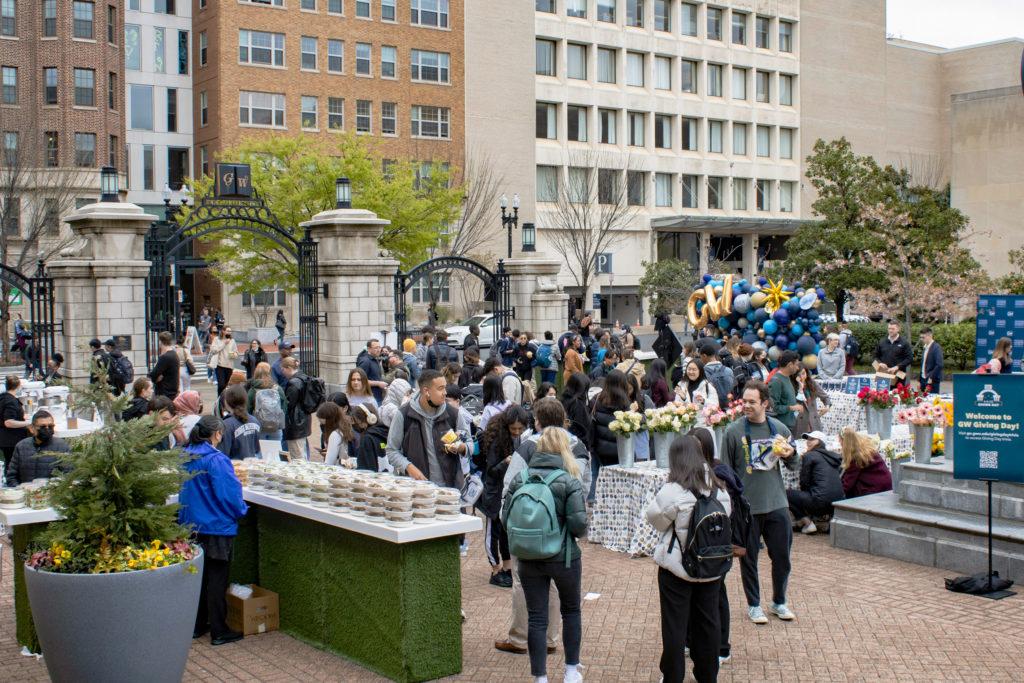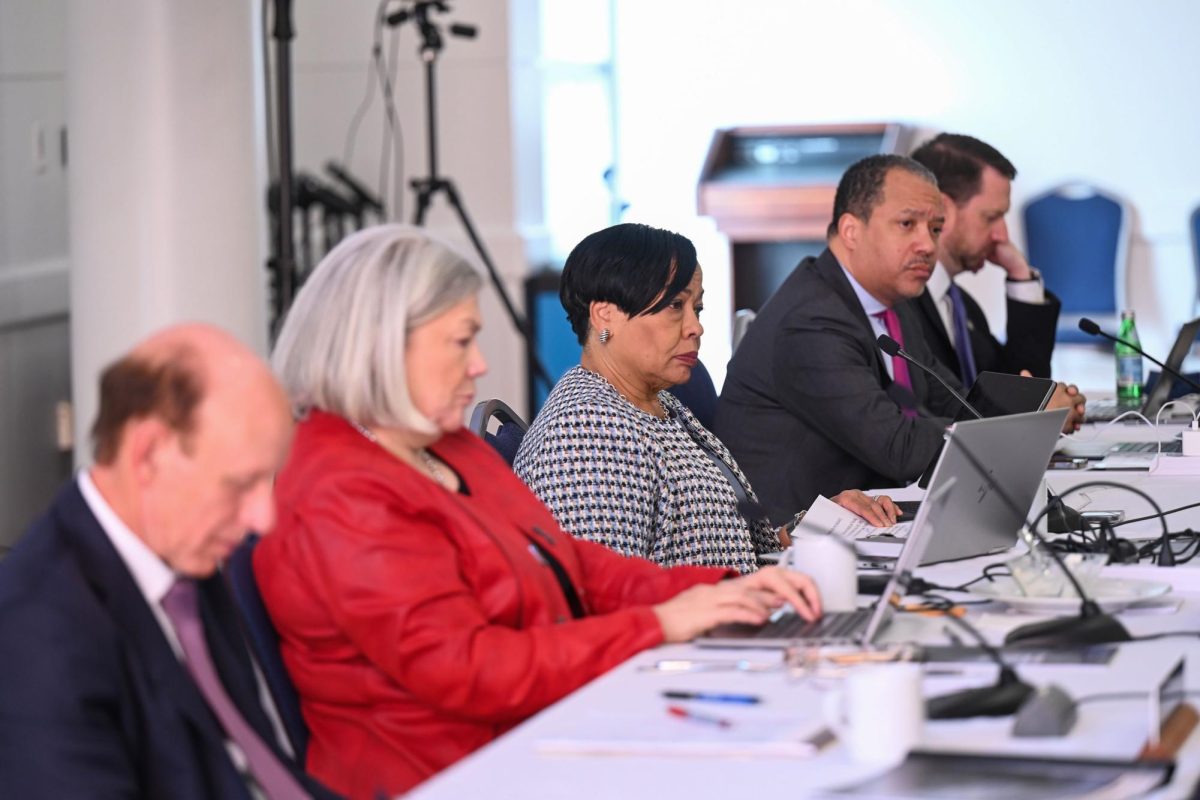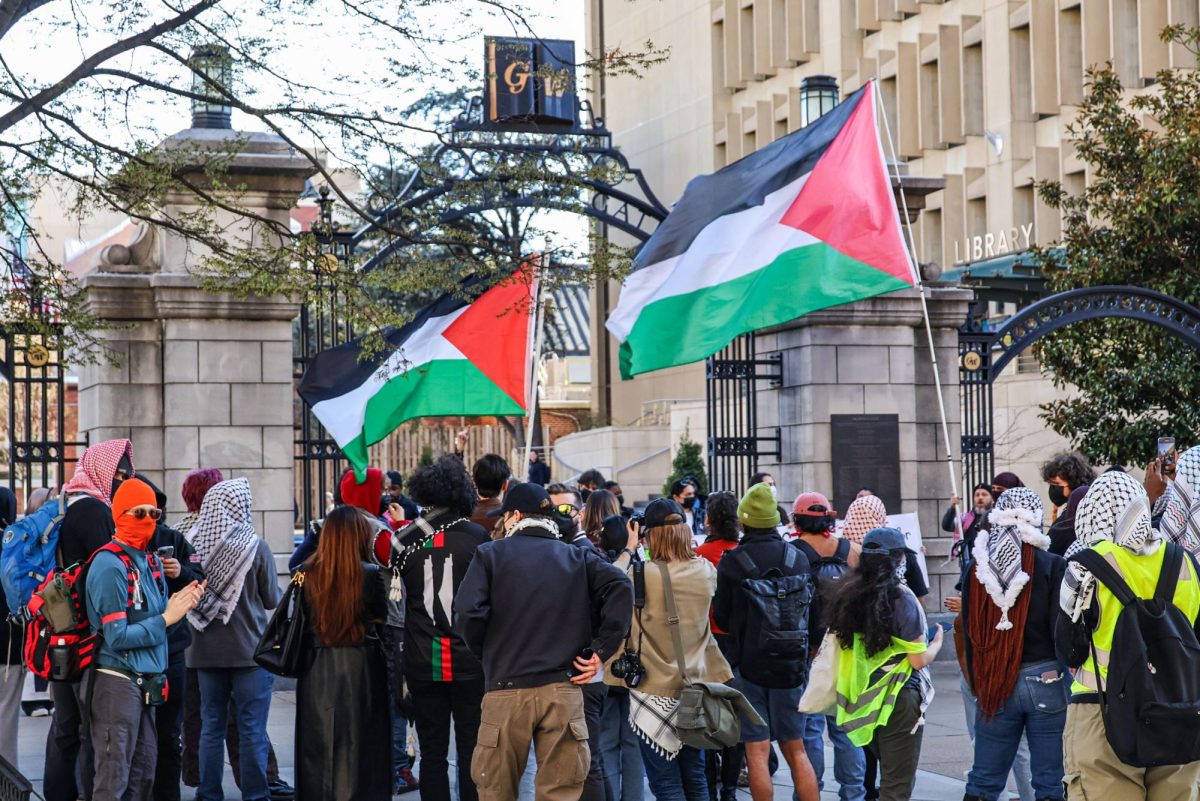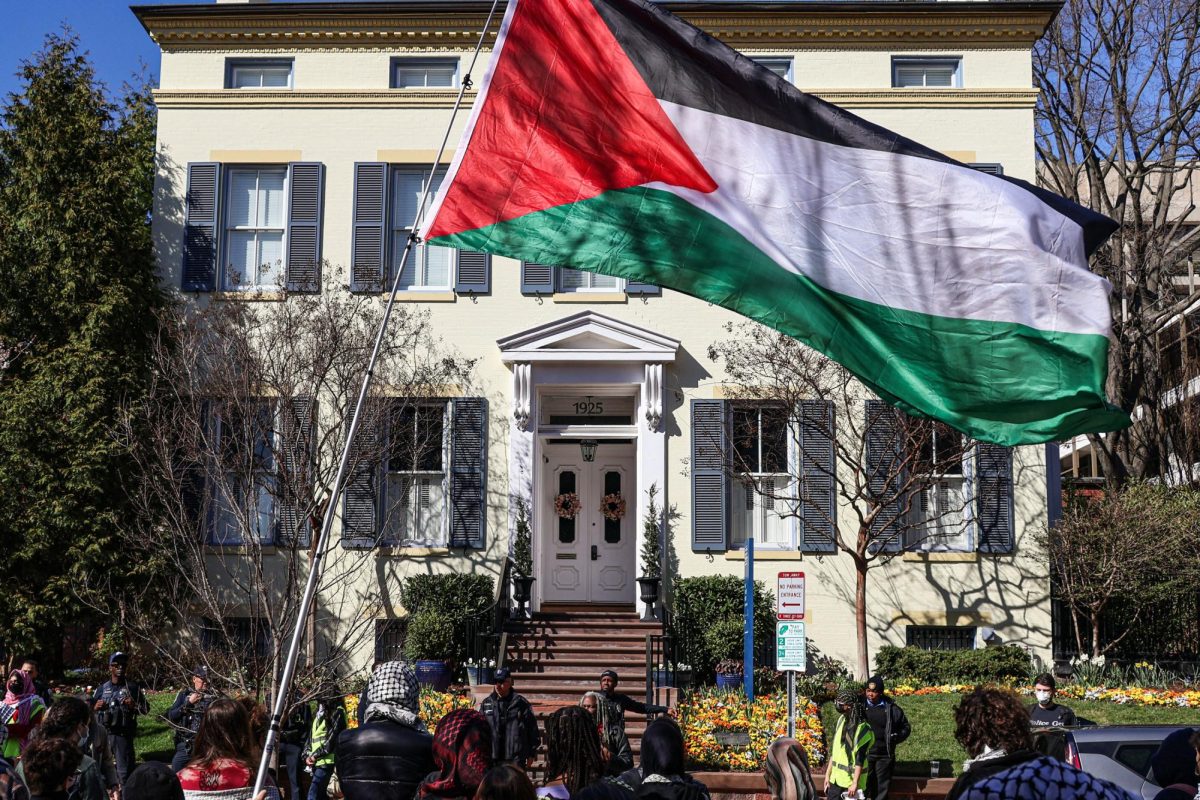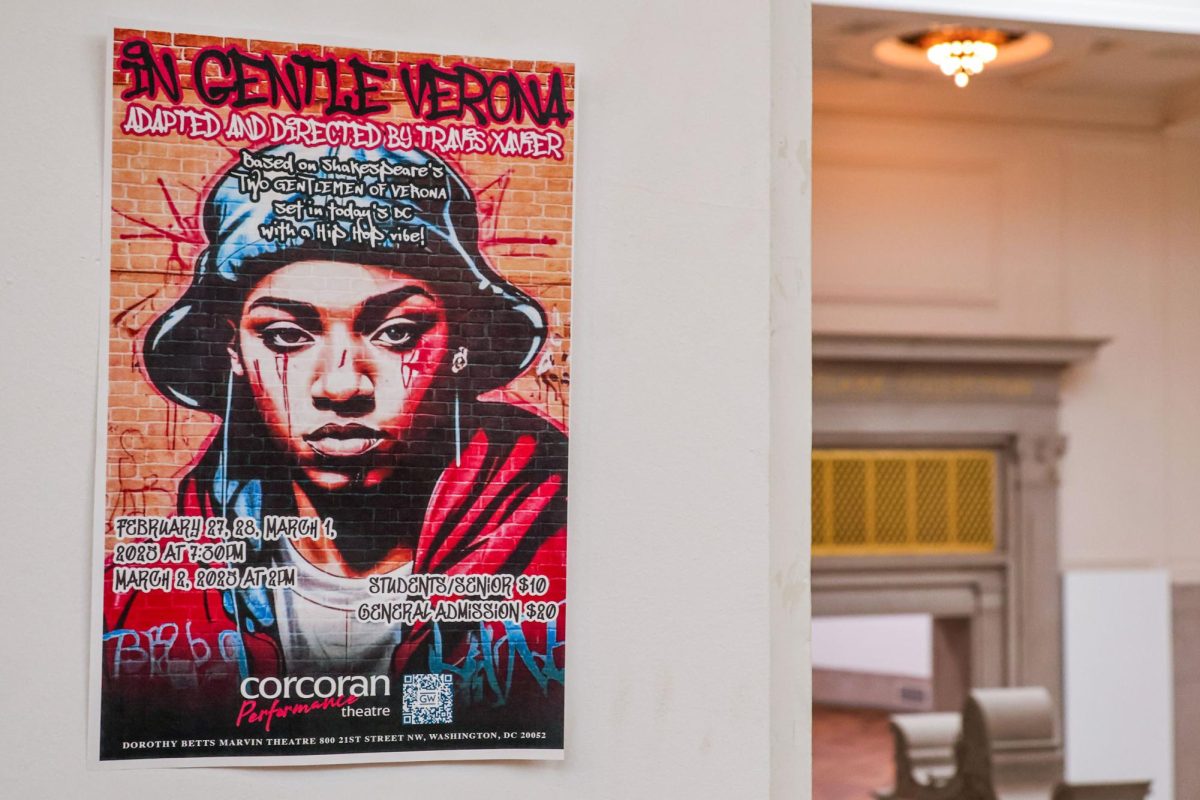Officials are altering fundraising strategies for GW’s third-annual Giving Day this week in hopes of generating more than $1 million in donations for the second-straight year.
Alumni Association President Will Alexander said at a Board of Trustees meeting in February that Giving Day – a 24-hour period for officials to raise as much money as possible – will shift from a single, 24-hour day to a 24-hour event spread across two days this year, running from noon Tuesday to Wednesday. He said the switch is meant to make giving easier during lunchtime hours as the University taps into student callers to reach “engaged” donors and maximize fundraising potential.
Donors can give a minimum of $5 on Giving Day or can make an early contribution before the 24-hour event.
Alexander said officials are gearing Giving Day outreach toward “loyal” donors who have given to GW in the past to request they renew their donations. He said the amount of alumni donors has fallen “behind” officials’ donation goals this year, and he is focused on reaching 2,750 donors on Giving Day.
Among GW’s peer schools of similar size about 4,000 students above the University’s student population, Syracuse University accrued 5,577 donors this year on their annual day of giving and Tufts University compiled 8,355 donors on their Giving Tuesday event in November.
“It’s a lot more focused on trying to reach out to your contemporaries, to people in your network, your sphere, to get them to start developing that habit and seeing how they can grow that participation and support,” Alexander said.
GW surpassed its $1 million goal by about $600,000 last year and collected donations from about 2,500 people. Officials said they directed part of the proceeds toward a “focused initiative” in 2021 to increase aid for Pell Grant recipients, adding about $2 million to the University’s financial aid budget each year.
The University’s Giving Day earnings ranked sixth among GW’s nine peer schools in 2022.
Daniel Burgner, the executive director of annual giving in the Division of Development and Alumni Relations, said this year’s goal of 2,750 donors marks a 10 percent increase from last year’s goal – an intentional uptick to encourage more community members around the world to make a contribution.
He said some donations may go toward matching contributions from GW families or administrators, like School of Medicine and Health Sciences Dean Barbara Bass, who is matching donations up to $50 for SMHS scholarship funds. Donors may also choose the destination of their contribution, including athletic teams, student organizations and school-specific scholarships like the Elliott Equity Fund, which provides financial aid to students in the Elliott School of International Affairs who are from historically marginalized groups.
Donors have the option to make a recurring donation on a monthly or yearly basis.
“We will be starting with over $400,000 of new matches and challenges for donors to amplify their impact this year,” Burgner said in an email.
He added that community members can sign up to be Giving Day Advocates – donation promoters that have the chance to earn prizes and compete to win a grant that funds an area of their choosing.
“GW community members can also celebrate Giving Day at Kogan Plaza on April 4 at noon, in addition to other on-campus Giving Day activities at Mount Vernon campus, GWSPH, SMHS and Nursing,” Burgner said.
Students who donated at least $5 last year earned GW-themed merchandise, food and flowers at an in-person Giving Day event in Kogan Plaza.
Patrick Realiza, who graduated in 2011 with a degree in political science from the Columbian College of Arts and Sciences and chairs the GW Asian and Pacific Islander Alumni Network, said he has selected his personal donations in prior years to go toward CCAS, his alma mater.
“My GW connection didn’t end with graduation, especially in the unique circumstances I’ve been presented,” Realiza said. “I’ve been offered these leadership roles, which has also tapped into my opportunity to network with others.”
Realiza said he tries to “reconnect” with students through University events like the Philippine Cultural Society’s career development event where he spoke on a panel in January about his job as the head of digital communications for the D.C. Commission on the Arts and Humanities. He said his experiences led him to give back financially to help students that may struggle to afford GW.
He said while GW prepared him for his career, alumni all have varying relationships with the University after they graduate depending on their student experience at GW, which influences their decision to donate.
“I think about the positive experience I had at GW and the positive experience that I continue to have in this alumni leadership role, and that’s what drives me to open up my checkbook year after year,” Realiza said.
Sophomore Claire Moore, one of 10 student marketing and communications specialists for Development and Alumni Relations, said she and her colleagues send alumni and donors videos and personalized emails to help them keep in touch with the University and encourage them to donate.
“We’ll send a video thank you to a donor if they send money and just connect with them instead of just cold calling and being like ‘Hi, give us money,’” Moore said.
She said she hopes Giving Day will help improve GW’s alumni donation rate, which has lagged behind its peer universities. Officials reported an 8.1 percent alumni donation rate in 2018, the lowest among its peer schools, including the University of Southern California, which reached a 41.1 percent alumni donation rate, and Boston University, which registered a 10 percent rate.
Brandon Tabor, the senior director of annual giving at the University of Notre Dame, said GW’s shift to a two-day Giving Day period could help donors fit making a donation into their “busy” schedules. Tabor said private universities host Giving Days because they are not able to operate on strictly tuition revenue, unlike public universities which receive state and federal funding.
All of GW’s seven mutual peer schools – Boston, New York, Northeastern, Syracuse, Tufts, Tulane and Wake Forest universities – have a single-day Giving Day.
“I feel proud when I make a gift to my alma mater – even though it’s small – because I know that together with others like me, we’ll help change someone’s life,” Tabor said in an email.


